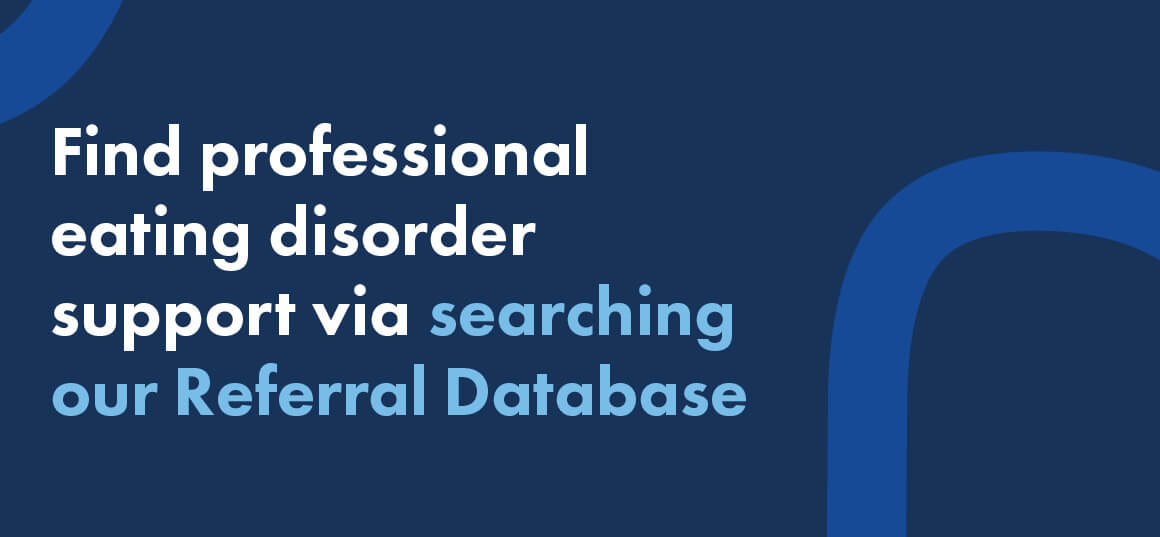What is unhealthy perfectionism and how can you overcome it?
Defining unhealthy perfectionism
Unhealthy perfectionism can manifest as a persons’ excessive preoccupation with achieving certain goals. If these are not met, an intense negative reaction often occurs, such as fear, anxiety and perceptions of deep failure.
Further, people with perfectionist tendencies are at greater risk of developing eating disorders and may find recovery increasingly challenging (NEDC, n.d.).
Do you constantly push yourself to meet impossible goals? Your perfectionist persona might be beckoning you to do so. The trouble is, when perfectionism spirals out of control, it can turn unhealthy and have a negative impact on your self-esteem and wellbeing.
Further, studies show that unhealthy perfectionism is linked with body image dissatisfaction and disordered eating behaviours (Barnett & Sharp, 2016).
The media constantly inundates us with airbrushed images portraying the ideal body type. Everyday, it pressures female bodies to stay ‘thin’ and male bodies to remain ‘muscular’ and ‘athletic’. Our society sells perfection as a commodity. We are readily told to purchase supplements, invest in gym memberships and adopt particular diets that each promise a ‘flawless’ appearance. We internalise these false conceptions and stereotypes of beauty, benchmarking them as success.
These societal exposures drive the onset of unhealthy perfectionism behaviours geared towards achieving an ideal version of self. People with perfectionist tendencies may impose unrealistic standards on their body and appearances, which they furiously strive to attain. This can transform into creating obsessive rules and habits that aim to control body weight, shape, size and diet.
Unhealthy perfectionism generates ongoing judgement that you are not good enough. It sends you down a dangerous path of self-comparison with others and improving your appearance to gain social approval.
Perfectionism is problematic when it dominates your everyday thoughts and actions. As a perfectionist, you may push people away because they detract from the quality time you could be spending on kicking goals. Think prioritising strict exercise routines over social interaction. You may also believe you’re a failure if you break one of your own rules (e.g eating healthily) or that ‘happiness’ can only be found once conquering personal objectives. Essentially, these thoughts reflect a negative mindset and will inevitably compromise your wellbeing.
Unhealthy perfectionism can take over your life, but fortunately, it can be reduced.
Tips to break free from unhealthy perfectionism
Try incorporating the following tips into your everyday life to disconnect from unhealthy perfectionism behaviours, which can be linked to poor body image and disordered eating. Remind yourself that cultivating self-compassion is the ultimate goal.
Recognise the ruse of perfection
Be aware that perfection is a completely unattainable state that you will never reach. Even once you fulfill goals that you assumed would bring personal happiness, your inner perfectionist will urge you to improve more and do better, because the goal posts are forever moving.
However, by actively recognising you are chasing after the ruse of perfection, you can begin to dismantle these harmful thoughts. Doing so will allow you to realise that you are more than enough, just the way you are. There is no need to orient yourself towards being perfect!
Live in the present
Try not to offset your plans to a distant future when you believe you will be more ‘happy’ and ‘confident’ with your appearance, because even then, you could find something else to critique.
The pursuit of perfection is endless, so return to the present moment and enjoy it. Prioritise socialising with others and start that hobby you’ve been dying to try. Mindfulness can encourage you to live in the present moment without letting thoughts, feelings or emotions bring you down.
Practice mindfulness
You can engage in mindfulness by becoming fully aware of your present thoughts and feelings, without letting them have a negative impact on yourself. Often, a perfectionist mind will instruct you to experience shame and guilt if you don’t follow or achieve a particular standard. In these moments you could:
- Learn to recognise when you are participating in negative self-talk and feeding toxic emotions.
- Retrain how your mind responds to this negativity: stop criticising yourself.
- Consciously accept any ‘imperfect’ action you have taken in the past.
- Remind yourself that you are ok and focus on letting go of any desire to be perfect.
Develop positive goals
Try not to pursue goals that aim to ‘perfect’ your body or diet, as this only drives negative self-esteem. Attempt to create goals that help to foster a loving and kind relationship with yourself. Finding new focuses that enable you to develop purpose, meaning and self-worth outside the parameters of appearance can be beneficial. Some potential goals could be:
- trial meditation every morning.
- write in a gratitude journal daily.
- build deeper connections with friends or family.
- stop comparing yourself to other people.
- reduce time spent on social media.
- read positive books.
- listen to motivational podcasts.
Say affirmations daily
Trial repeating uplifting affirmations that amplify your self-worth and teach yourself to embrace your perceived ‘imperfections’. This can condition your mind to accept yourself as you are, without the need to chase perfection. Some effective affirmations include:
- “I am perfectly imperfect”
- “I am valued and I am enough”
- “Have no fear of perfection you will never reach it” – Marie Curie
- “Be kind to yourself”
- “Every body is a “good body” – @wetheurban
Do the uncomfortable and accept imperfection
You might intentionally challenge yourself to do things that make you uncomfortable within a safe environment. For example:
- Cancel your usual gym plans to catch up with a friend.
- Swap your rigid schedule of ‘hustling’ for more self-care breaks.
- Make a spelling error on purpose when sending a message.
When you expose yourself to discomforts and recover from these encounters, your fear of failure diminishes. Through repeating these exercises, you can learn to approach imperfection with greater resilience. This can cross over into other facets of life, including your relationship with food and your body. Over time, the usual self-deprecating thoughts you might accumulate after breaking a habit or failing to look a certain way, can begin to lessen.
Overcoming unhealthy perfectionism doesn’t happen overnight. It is a journey that relies on your continuous efforts to change ingrained habits and mindsets. If unhealthy perfectionism is something you struggle with, make sure to reach out and seek professional help. Remember to stay empathetic to yourself – your worthiness is far greater than skin deep.
References
Barnett, M., & Sharp, K. Maladaptive perfectionism, body image satisfaction, and disordered eating behaviors among U.S. college women: The mediating role of self-compassion. Personality and individual differences, 99, 225-234.
National Eating Disorders Collaboration. (n.d.). NEDC e-Bulletin: Issue 45. Retrieved March 29, 2021, from https://nedc.com.au/research-and-resources/show/issue-45-perfectionism-as-a-risk-factor
Written by Isabelle Fisher, Butterfly Communications and Social Media Intern




















